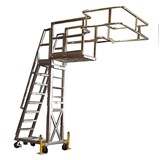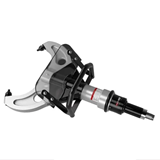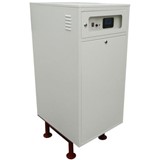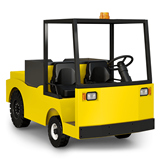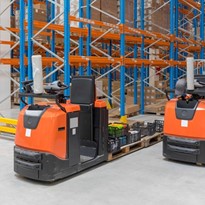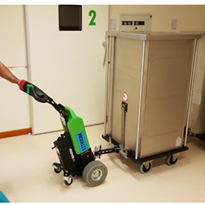Industrial Towing Tugs: Should You Lease or Buy?
When managing logistics, warehousing, or industrial operations, one of the critical decisions you'll face is whether to lease or buy industrial towing tugs. These machines are vital for moving heavy loads efficiently within facilities, and the choice between leasing and buying can significantly impact your operational efficiency, cost management, and long-term business strategy.
This article will explore the key considerations, advantages, and disadvantages of leasing and buying industrial towing tugs, helping you make an informed decision that aligns with your business's goals and resources.
What are Industrial Towing Tugs?
Industrial towing tugs are powerful machines designed to move heavy loads on wheels, such as parts, baggage trolleys, trailers, and bins. They help improve productivity and reduce physical strain on workers.
Types of Industrial Towing Tugs
-
Stand-On Tug
Operators stand while using these tugs, which offer excellent visibility and are ideal for quick movements in warehouses or manufacturing plants.
-
Electric Tow Tug
These battery-powered tugs are versatile and used for towing loads like trailers or trolleys over short distances, which are common in logistics and warehousing.
-
Electric Tow Tractor
Larger and more powerful tow tractors handle heavier loads and longer distances, often used in airports or large manufacturing facilities.
-
Ride-on Electric Tug
Operators sit while driving these tugs, making them comfortable for longer distances and extended use, especially in large industrial environments.
Leasing vs. Buying: What’s the Difference?
-
Leasing Industrial Towing Tugs
Leasing is like renting a towing tug for a set period. It is ideal for businesses that need flexibility. Leasing is perfect for short-term projects or when you need extra tugs temporarily, such as during peak seasons. Another benefit of leasing is that it allows you to upgrade to newer models more quickly once your lease ends, which can be helpful if technology in towing tugs changes frequently. -
Buying Industrial Towing Tugs
Buying involves a more significant initial investment but gives you full ownership of the tug. This can be more cost-effective in the long run, especially if you have stable, ongoing needs. For example, if your business consistently requires towing tugs, owning them means you don’t have to worry about renewing leases or returning equipment. Ownership also means you have complete control over how the tugs are used and maintained.
Pros and Cons of Leasing Towing Tugs
Leasing towing tugs offers several advantages, particularly for businesses looking to manage costs and maintain operational flexibility. However, it also comes with some potential drawbacks. Here’s a look at the pros and cons of leasing towing tugs.
Pros of Leasing Towing Tugs
-
Lower Upfront Costs
Leasing requires minimal initial investment, making it easier to expand your fleet without a financial burden. This is for businesses that need to quickly scale up operations or handle a sudden increase in demand.
-
Flexibility in Operations
You can adapt to seasonal operational needs. If your business experiences short-term projects, leasing allows you to increase or decrease your fleet size as needed without being locked into long-term ownership.
-
Access to the Latest Technology
Leasing agreements often allow you to upgrade to newer models at the end of the lease term. This means you can keep your fleet updated with the latest advancements in towing tug technology, such as improved energy efficiency or enhanced safety features, without the commitment of purchasing new equipment.
-
Predictable Monthly Costs
Leasing typically involves fixed monthly payments, which can help with budgeting and cash flow management. There are no unexpected repair costs or depreciation concerns, as the leasing company often covers these.
Cons of Leasing Towing Tugs
-
No Ownership
When you lease, you do not own the towing tugs, so you don’t build any equity in the equipment. Once the lease term ends, you’ll either need to return the equipment or enter into a new lease agreement, which can add ongoing costs.
-
Potential for Higher Long-Term Costs
Over time, leasing can become more expensive than buying. The leasing payments may surpass the cost of purchasing the new equipment, especially if you lease the same tugs for an extended time.
-
Usage Restrictions
Leasing agreements may come with usage restrictions, such as limits on the number of operating hours or specific maintenance requirements.
-
Returning Equipment
At the end of the lease, you must return the towing tugs in good condition. There will be additional costs for repairs or refurbishments to meet the return conditions set by the leasing company.
Pros and Cons of Buying Towing Tugs
Buying towing tugs can be a good investment, especially for businesses with long-term, consistent operational needs. However, ownership also comes with its own set of challenges. Here’s a breakdown of the pros and cons of buying towing tugs.
Pros of Buying Towing Tugs
- Full Ownership
You can control their use, maintenance, and customization when you buy towing tugs. This is especially advantageous for businesses needing consistent, long-term equipment access.
-
Cost-Effective in the Long Run
While buying may require a higher initial cost, it can be more cost-effective in the long run without the regular expenses associated with leasing, particularly if the equipment has a long, useful life.
-
No Usage Restrictions
Ownership means there are no restrictions on how you use the equipment. You can operate the towing tugs as much as needed without worrying about exceeding the limits set by a leasing agreement.
-
Asset Value and Depreciation Benefits
As an owned asset, towing tugs can be listed on your balance sheet and may provide depreciation benefits, reducing taxable income. Additionally, if well-maintained, the equipment may retain some resale value at the end of its useful life, offering a potential return on investment.
-
Long-Term Stability
Buying towing tugs provides stability in operations, as there is no need to renegotiate leases or worry about equipment availability at the end of a lease term. This stability is crucial for businesses with consistent, ongoing operational needs.
Cons of Buying Towing Tugs
-
High Initial Cost
Purchasing towing tugs requires a significant upfront capital investment, which can financially burden small or medium-sized businesses. This can limit the ability to invest in other areas of the business.
-
Depreciation and Declining Value
Over time, the value of the towing tugs will decline, reducing their resale value. If the equipment becomes outdated due to technological advancements or changes in business needs, the investment may quickly lose value.
-
Maintenance and Repair Responsibilities
As the owner, you are fully responsible for all maintenance, repairs, and insurance costs. These expenses can add up over time and may cause unexpected costs if the equipment requires significant repairs or upgrades.
-
Risk of Obsolescence
Buying towing tugs means you may need more modern equipment if new technologies appear. This can be a significant disadvantage in industries where technology develops rapidly, potentially making your equipment less efficient or compatible with newer systems.
-
Less Flexibility
Ownership ties up capital and reduces flexibility. If your business needs a change, it can be more challenging to scale down or upgrade compared to leasing.
Should I Lease or Buy Towing Tugs?
-
Operational Needs
Consider your current needs, how long your project will last, and the ability to manage maintenance. Leasing is often better for short-term projects and fluctuating demand because it offers flexibility without the commitment of ownership. On the other hand, buying may be more cost-effective for long-term, stable operations where you can fully use the equipment over time.
-
Cost Considerations
Compare the costs of ownership and leasing by calculating total expenses. Evaluate when purchasing becomes more cost-effective and considers the opportunity cost of investing in equipment. While leasing has lower initial costs, buying can lead to long-term savings if the equipment is heavily used.
Future Growth and Technological Change
Think about your business's growth potential and how quickly towing tug technology is advancing. Leasing can stay current with new technology, which is crucial if your industry develops rapidly. Meanwhile, buying provides stability and long-term value, significantly if technology changes slowly and your operational needs are consistent.
In conclusion, you can make a well-informed decision on whether to lease or buy towing tugs by considering your operational needs, the costs associated with each option, and the potential for future growth and technological advancements. Each option has advantages, and the right choice will depend on what best supports your business’s goals and resources.
Ready to Own an Electric Tug?
Don’t wait—get the best deal on your electric tug today.
Get Quotes Now on IndustrySearch and compare top offers from trusted suppliers. Find the perfect fit for your business and start improving your operations immediately.
FAQ:
Q: What are the main advantages of leasing industrial towing tugs?
A: Leasing offers flexibility, lower upfront costs, and the ability to upgrade to newer models more efficiently. It’s ideal for businesses with fluctuating demand or short-term projects.
Q: When is buying towing tugs a better option?
A: Buying is often better for long-term, stable operations where the equipment will be used extensively. It can save money over time and provides full ownership, giving you control over maintenance and usage.
Q: How do I decide between leasing and buying?
A: Consider your operational needs, the total cost of each option, and your business’s future growth and technology requirements. Leasing is best for flexibility and low initial investment, while buying is better for long-term value and stability.

.jpg)

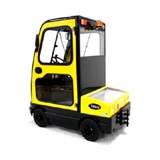


-160x160-state_article-rel-cat.png)
-160x160-state_article-rel-cat.png)

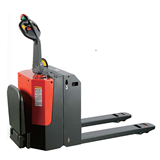


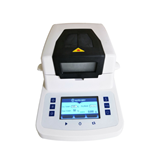
-160x160-state_article-rel-cat.jpg)



